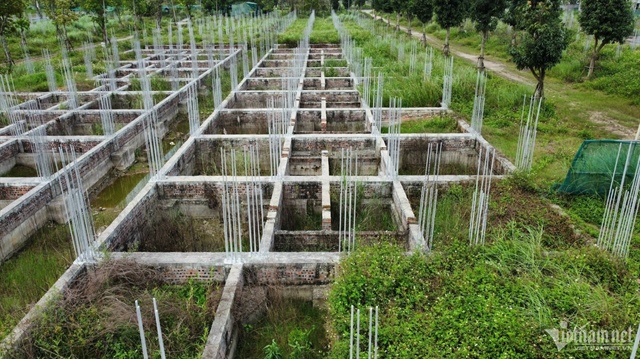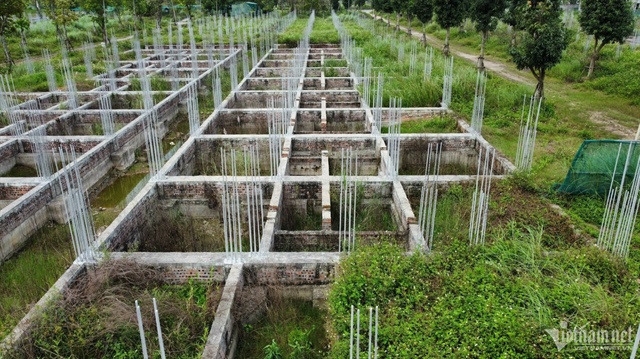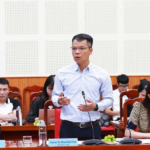In terms of real estate tax policy, Deputy Prime Minister Tran Hong Ha has recently directed attention towards taxing idle land and delaying project implementation. This move aims to curb speculation and encourage efficient use of real estate.
However, as expert Dinh The Hien points out, this approach is more of a reactionary measure than a comprehensive legal framework. He suggests that a detailed Law on Property Tax, encompassing various scenarios, would be a more robust solution. This law would differentiate between lands left idle due to intentional investor actions and those affected by local policy or administrative delays.
Introducing a Property Tax to Curb Speculation
According to Mr. Hien, a property tax law is crucial to combating speculation. Most countries have implemented such taxes, based on the principle of “the more you own, the more you pay.” With this law in place, individuals and businesses would be discouraged from hoarding land, as they would have to either develop it or pay taxes on it.

Idle land and delayed projects: Enforcement or Taxation? – Image: Hong Khanh |
Nguyen Van Dinh, Vice President of the Vietnam Real Estate Association, acknowledges the existing penalties for developers who fail to implement approved projects. According to the Land Law, if a project remains inactive for 12 consecutive months or falls 24 months behind schedule, the state can revoke the land and any constructions.
Additionally, developers may request an extension of up to 24 months, but they must pay additional fees equivalent to land use or rental charges for that period. If they fail to utilize the land even after the extension, the state will revoke the land without compensating for the land, attached assets, or remaining investments.
However, Mr. Dinh highlights the lack of a mechanism to regulate and curb speculation by individual investors. Hence, he emphasizes the urgency of introducing an effective and transparent real estate tax policy, primarily targeting accumulators and speculators rather than genuine homeowners or businesses.
Proposing Penalties Over Taxation
Real estate expert Tran Khanh Quang agrees on the necessity of taxing idle land and delayed projects but advises caution. Considering the multiple existing taxes and fees on real estate, he suggests differentiating between subjective and objective causes for project delays. For projects with unjustified delays, a two-strike policy could be implemented, with taxation imposed on the third strike. This would deter companies from “land hoarding” for profit.
However, Mr. Quang also points out the impending challenges for real estate businesses, including market-rate compensation for land acquisition, market-rate land use charges, and the need for substantial capital. Therefore, he proposes considering penalties to expedite project implementation and increase market supply, rather than introducing another long-term tax.
Nguyen Le
– 06:00 22/05/2025
“Don’t Equate the 20% Tax Levy on Real Estate Capital Gains to Every Home Seller”
“Experts suggest that a 20% tax on real estate transfer profits should be targeted at the right individuals and not applied uniformly. This is especially important when considering the needs of those seeking genuine accommodation. The proposal aims to curb speculation and ensure a stable market, but it is crucial to differentiate between investors and those seeking a home.”
The Curious Case of the Second Property Tax Proposal: What Does the Ministry of Finance Have to Say?
The Ministry of Finance is actively engaged in identifying challenges and gaps in the implementation of tax policies related to real estate. They are committed to reporting these findings to the relevant authorities to ensure a seamless and efficient process in the industry.
“A Taxing Matter: Curbing Property Speculation with Time-Based Levies”
The Ministry of Finance is proposing to study and implement a tax on capital gains from real estate transfers. This progressive initiative aims to revolutionize the nation’s tax landscape by introducing a nuanced approach to taxation, one that is sensitive to the varying financial circumstances of citizens. By taking into account the duration of property ownership, this proposed tax adjustment has the potential to foster a more equitable society, where the tax burden is distributed in a manner that accounts for the diverse economic realities of the populace.
The Taxman Cometh: The Second Home Edition
The Ministry of Finance proposes studying the implementation of taxation on personal income from real estate transfers based on holding periods, drawing from the experiences of several countries. This progressive approach aims to create a fair and efficient tax system, ensuring that individuals contribute proportionally to their gains from real estate investments.





















